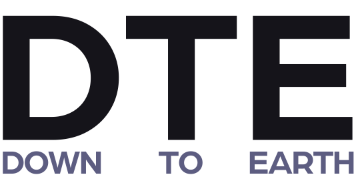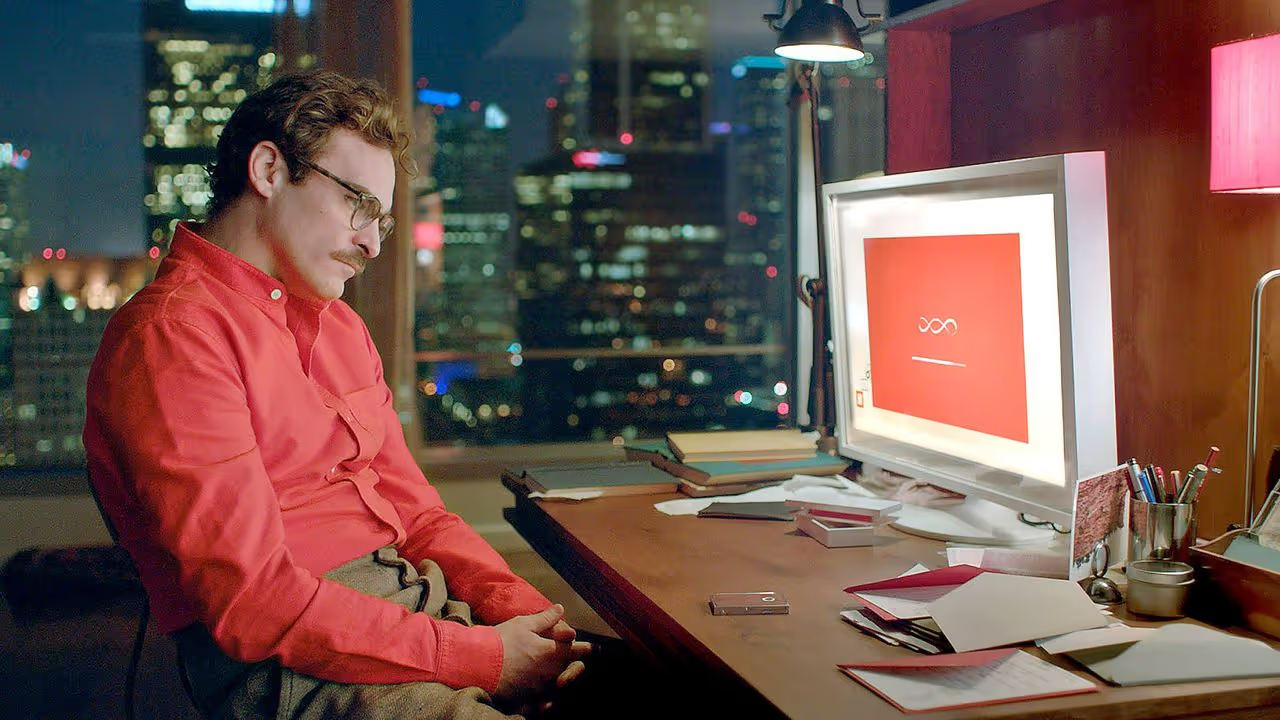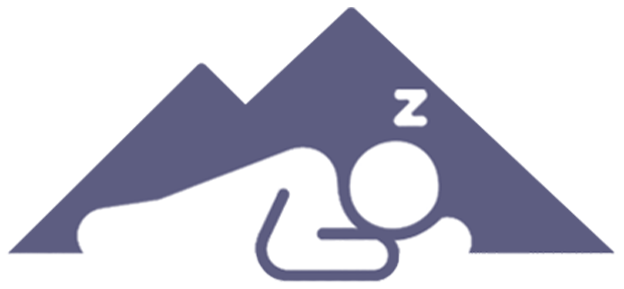How I've Leveled Up Since Covid 🦠
Welcome to the Show 🎥Intro: Greetings 🖖🏾Act I: Covid Four Years Later: A Reflection 🙇🏽Act II: What’s In My Shopping Cart? 🛒Act III: Chores Make Kids Happy, Harvard Says 🧹
Greetings 👋🏽
We’ve reached a milestone of 400 (!) subscribers at Down to Earth, and I want to seize this moment to introduce myself to our growing community.
My name is Red Young. I'm the Founder & Editor of Down to Earth, a weekly happiness, health-based newsletter.
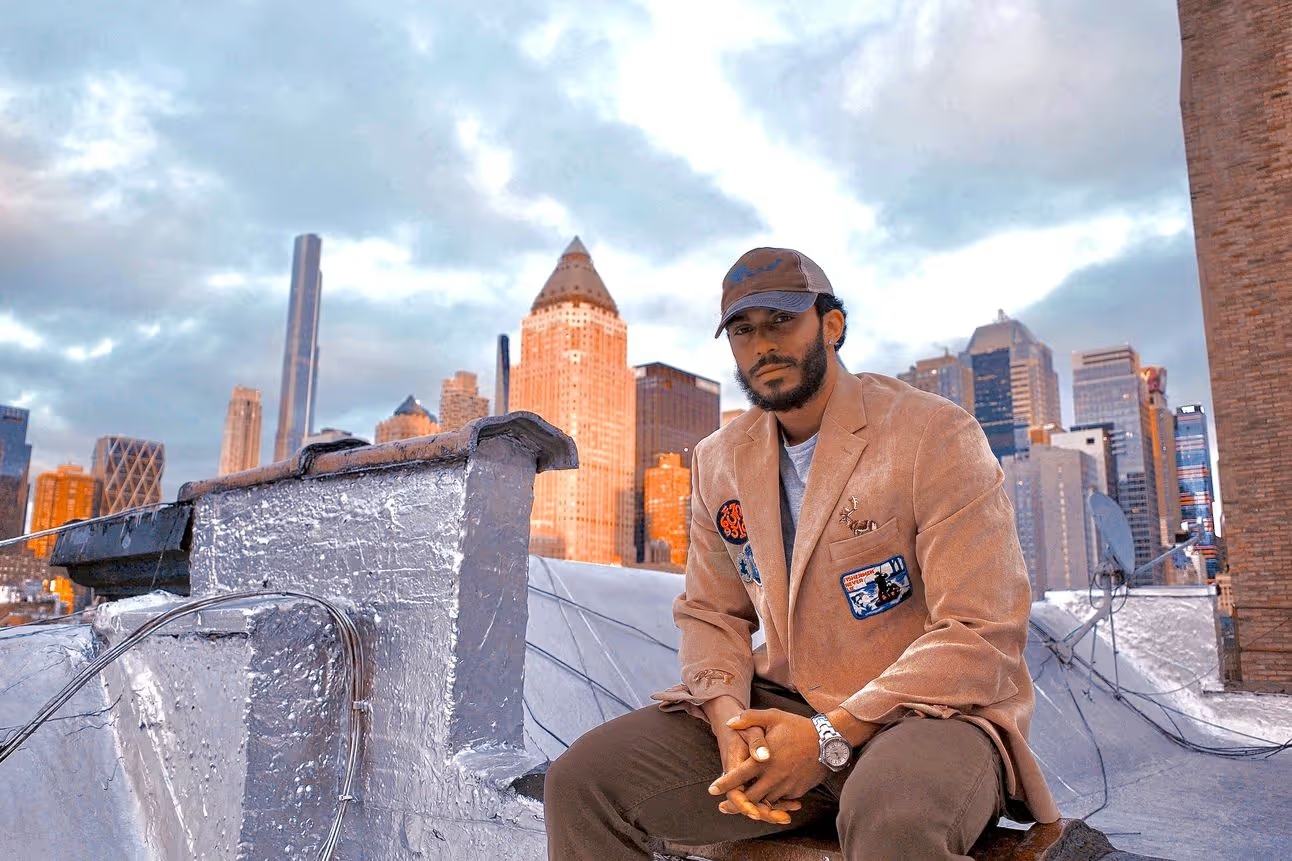
My hometown of Hell’s Kitchen, New York
My vision is to create a world brimming with health, deeply interconnected communities, and an unwavering sense of optimism. Down to Earth aims to make this a reality.
With over five years in journalism, from my early days at NBC to building my newsletter chops at Morning Brew, I’ve always been driven by a passion for storytelling and making a difference.
Beyond the newsletter, I advocate for affordable housing and social justice reform in New York City, issues close to my heart.
I started Down to Earth because I truly love sharing what makes me feel good.
Despite a world full of mayhem, I've found a path to a blissful and fulfilling life, rooted in simplicity and resilience.
It wasn’t an overnight process, but I realized that life is as good as you make it.
There will always be challenges.
How you cope with them is where the magic happens.
Down to Earth is rich with essential resources and valuable information to guide you through life's obstacles, with each edition offering stories that encourage your pursuit of happiness.
I am truly humbled by the community’s positive response over the last few months.
Thank you so much for your support through this journey. The road ahead is bright.
Peace,
How I Leveled Up During Covid 🦠
“It’s been four years!? Where has the time gone?”
As the anniversary (if we can call it that) of the initial COVID lockdowns creep up, there’s a common feeling that time has been lost.
But why is that? Why did these years fly by?
There just wasn’t anything to do. I shudder even thinking about the eerily empty New York City streets shackled by social distancing restrictions.
We were then left to our own devices, and presented with some critical decisions.
When no one watches, what will we do? When there are few responsibilities, who do we answer to? What values do we abide by?

With this excess of time, many of us adopted new hobbies and engaged in quirky activities (looking at you, sourdough aficionados).
We obsessed over media we may have previously ignored, (Tiger King, The Last Dance) and toyed with the idea of TikTok fame for the first time. We got used to paying $20 extra for grocery delivery.
While it may seem trivial in hindsight, many of these behaviors set the tone for what the rest of the decade looked like for our societies.
Several of these habits exposed a darker side of humanity’s judgment.
During the first year of the pandemic, for example, 25% of people said they drank more than usual, often to cope with stress.
Further, a RAND Corporation study found that women have increased their heavy drinking days by 41% compared to before the pandemic.
Simply put, stressful events put our willpower to the test.
The good news is that we can always flip the negative stress into positive momentum.
It just takes a bit of practice.
Before I had this zenful approach, I felt gravity weighing on my chest like a boulder.
I drank and smoked more than was usual or reasonable, and developed a wicked addiction to Fortnite of all things. After about a month of this delusion, I felt the effects and knew it was time for a serious rebrand.
Since I was working remotely, all the power of change was in my hands.
Below, we’ll talk about how I reinvented my lifestyle by developing existing good habits and eliminating negative ones.
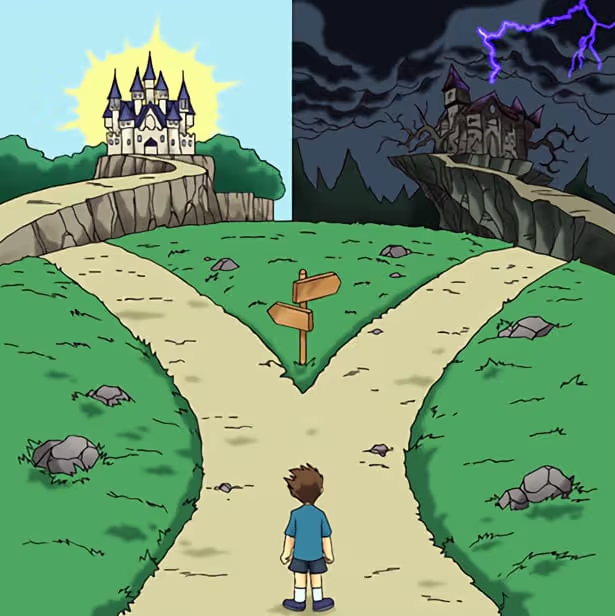
Subscribe nowSo, What Happened? 📈
Look at the emoji in the headline. See how it initially climbs, then takes a precipitous drop? I imagine that’s how many of us felt when the pandemic hit.
“Things were going great until COVID hit,” I often hear folks lament.
But time keeps going, and you can always bounce back, and then up, like this chart.
Here’s how I did it.
- Less screentime. The pause of the pandemic put me face to face with my digital habits. I’ve made it a priority to resist the pull of unnecessary screen time, installing apps like BePresent to keep me on my toes (I aim to keep screen time under two hours a day). I delete addictive apps like Instagram and TikTok from my phone when I’m not using them. I’m overall mindful, realistic, and intentional about time on my devices.
- Organization. I was never organized in my workspace or scheduling until time stopped during the pandemic. Now, I print paper schedules to keep on track, organizing my day with several tasks and to-do lists. I employ various calendar apps and prioritize appointments and hangouts, again being mindful of what’s happening around me.
- Yoga and Stretching. Yoga was a huge breakthrough for me. I’ll always have fond memories of completing at-home yoga classes with my mom since all the gyms were closed, introducing me to a new form of exercise/wellness. Yoga is great for strength, joint health, breathing, and mindfulness, plus it feels great. Soon after I began a daily practice, an old Indian man randomly approached me with some sage advice. “Do yoga and you live forever!” he said, shaking a jagged finger. I took it as a sign to continue.
- Financial Literacy. I took the time to watch YouTube videos about credit, investing, and budgeting during the pandemic. It also helped that I was producing for the biggest name in business news at the time. Personal finance and is an invaluable life skill that I am grateful for, and I realize that much of this knowledge is kept under wraps by design.
- More Intentional & Mindful. Back when time seemed unlimited, it was easy to take it for granted. I quickly learned that being on point with every moment is the key to seizing control of one’s destiny. “What do I want from my life?” I would ask myself. Way back in 2020, I was hellbent on producing a feature film. Naturally, I locked myself in my room for hours on end, co-writing a screenplay with my friend Max. After a few months of hard work, my intentionality resulted in what I desired — a script that I was proud to share with the world. I realize that the same strategy is employed as I write these words.
- Recognition of Self-Value. I simply respect myself more, and I don’t let others take away from that. I see myself as a Fortune 500 company, where investors are eager to please — and rightfully so. It doesn’t matter who or what it is — my value must always be recognized and respected. This also means that I give myself credit when it’s due, and follow through with ideas I truly believe in.
- Less “Self.” Despite how self-centered the previous section sounds, I’ve also learned to make things less about "me.” It’s now more about what I can provide for others. This means developing skills, sharing knowledge, and applying grace to everything I do. Dropping my ego has allowed me to create without hesitation, positioning me as more of a producer than a consumer. Since things are less about self, I also don’t rely on external validation. I’m in a good spot when motivation stems from my ideas and creations.
- Cherishing Relationships. Life felt fragile and vulnerable during the uncertainty of the pandemic. Millions of lives were lost. That pressure instilled a sense of appreciation for the people I still have in my life, making sure to cherish every moment and relationship while they are still present. Joy finds its way to me more often this way. Sometimes it takes great loss to be found.
Now that we’re firmly in the post-pandemic era, what habits have you picked up or dropped over the last four years? Which do you hope to adjust by the time 2028 rolls around?
What’s In My Shopping Cart? 🛒
This is a fan-favorite segment where I share items I’ve researched and enjoyed.
🥬 Dry Roasted Teriyaki Seaweed Anyone who’s been to my apartment is offered two things as a snack — dry roasted edamame and seaweed. Both are low-calorie snacks with a salty kick of electrolyte-fueled energy.
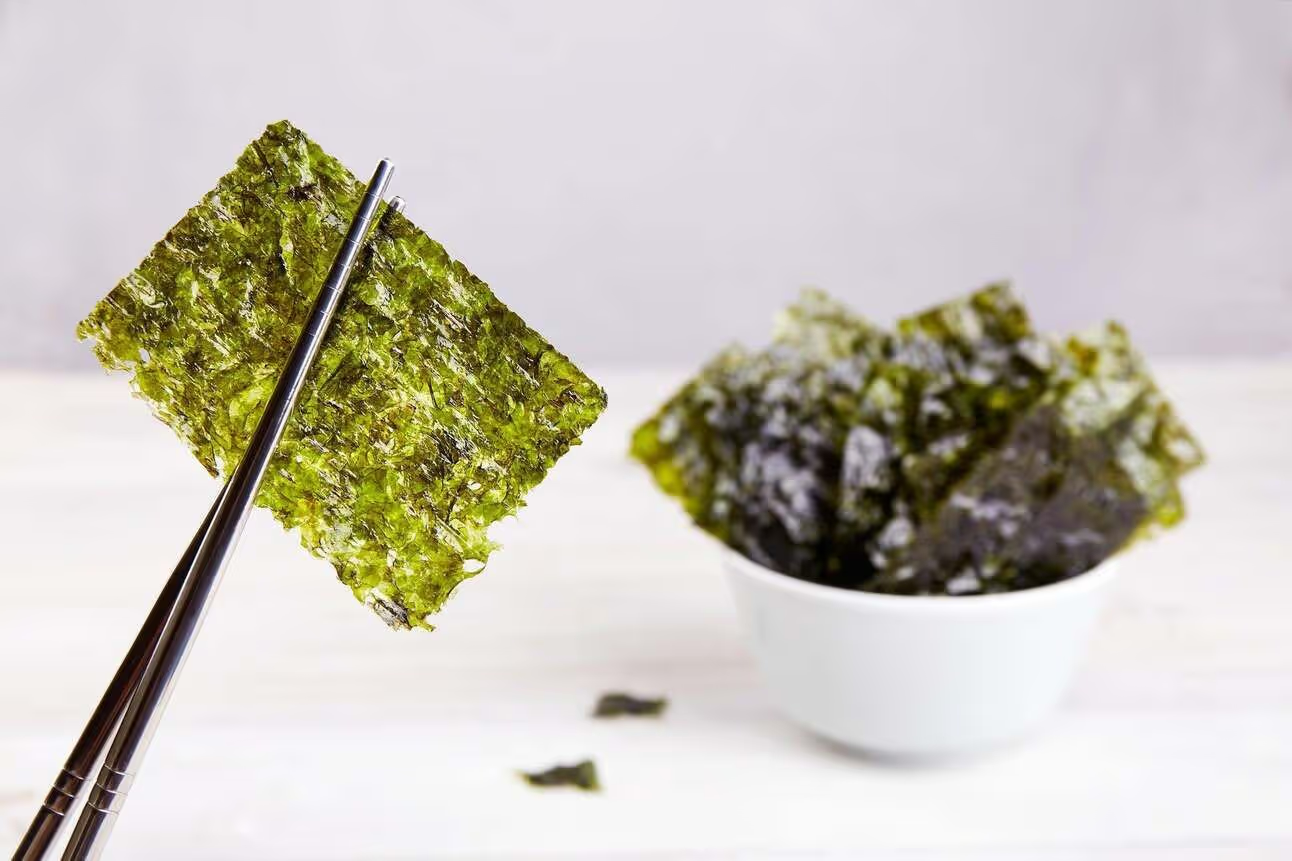
Seaweed is an excellent source of vitamins A, C, calcium, and iodine. Iodine is essential for thyroid function, which regulates metabolism. Though I’m usually crunching away at these on the go, my favorite use case is in the kitchen. The trick is to dump a pack of seaweed into a favorite dish like morning eggs, cooking the strips in a pan until they return to a spinach-like texture. While any flavor will do, the teriyaki variety just hits different.
🐫 Palestinian Nablus Soap I was gifted a few bars of this super clean, vegan soap straight from Palestine. They smell great and don’t leave any sticky film behind. With only three (all-natural) ingredients, this product has a cause I can firmly get behind.
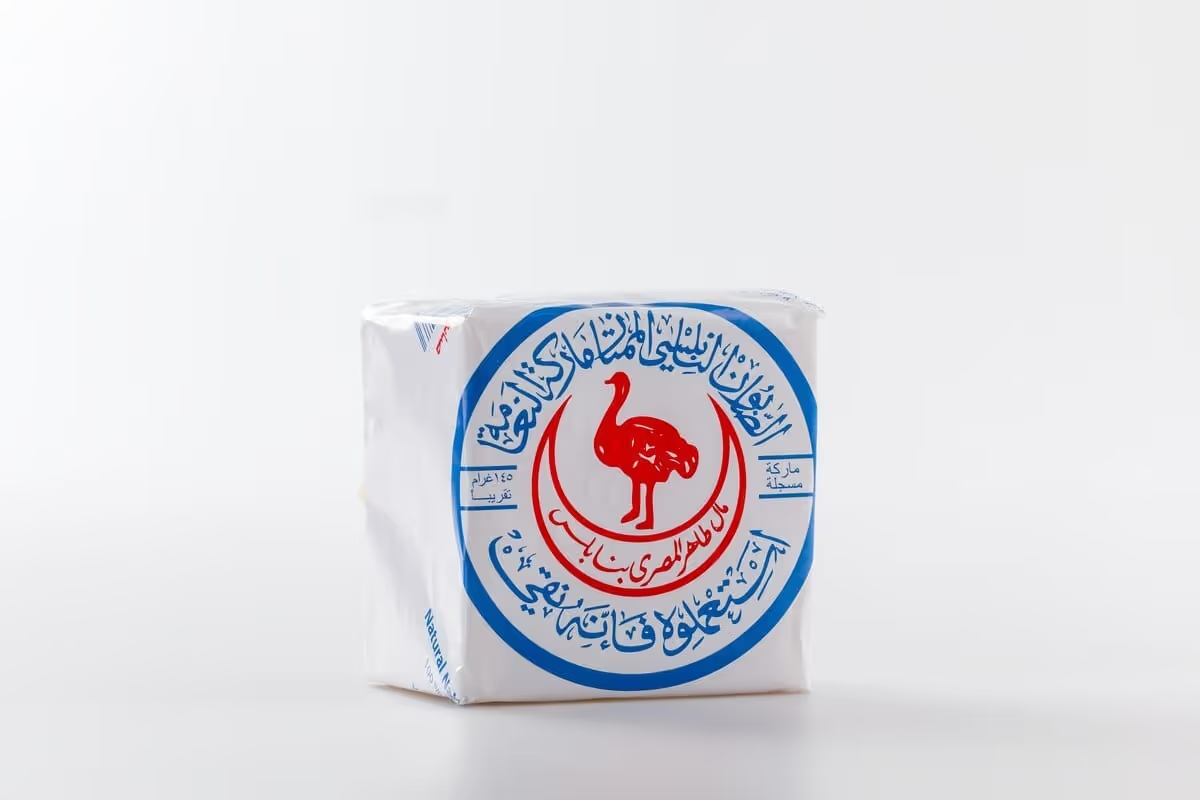
🦷 Remineralizing Toothpaste My latest fixation has been oral microbiome health. The bacteria in our mouth are crucial for our overall well-being, so brushing with the correct toothpaste is step one. Boka's toothpaste remineralizes your teeth, meaning it literally rebuilds its foundations. It freshens breath without fluoride, sulfates, parabens, or artificial flavors. I’m rocking with the ginger coconut flavor right now.
Applewood Smoked Canned Salmon “Canned Salmon!??” This is a typical response I get when sharing my favorite food from Trader Joe’s. It may perturb some, but it’s true — this affordable, convenient powerhouse of nutrition is the best $4 you can spend. Steeped in olive oil, (which itself is rich in heart-healthy benefits,) I hit two birds with one stone here. Boasting a hefty share of protein and omega-3 fatty acids, this fish works like medicine for my brain and body. And it tastes great, too.
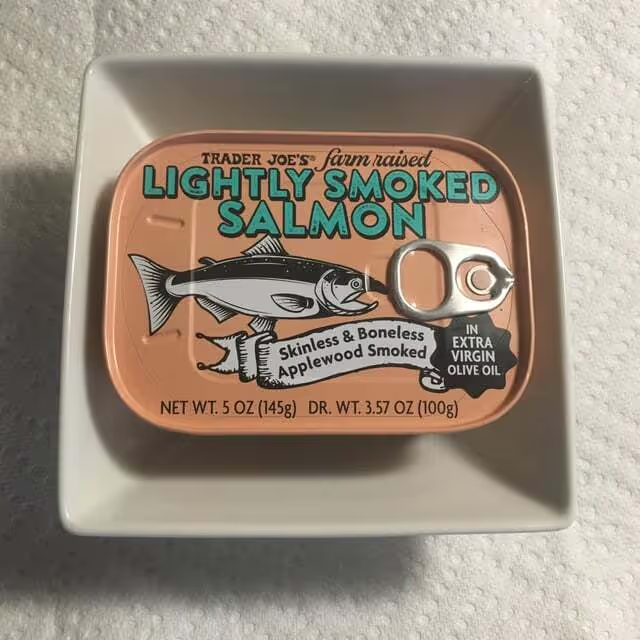
Study: Kids with Chores Are Happier Adults 🧒
I recently stumbled upon one of the coolest happiness studies ever.
Ever heard of the Harvard Study of Adult Development? It's the longest-running study of its kind, and it has some absolute gems about what makes us thrive.
Here's a nugget that might surprise you: Kids who chip in with chores around the house tend to grow into much happier adults. That’s right, doing the dishes and making your bed can actually set you up for a brighter, more successful future. This study is the ultimate proof that the little things truly matter in the long run.
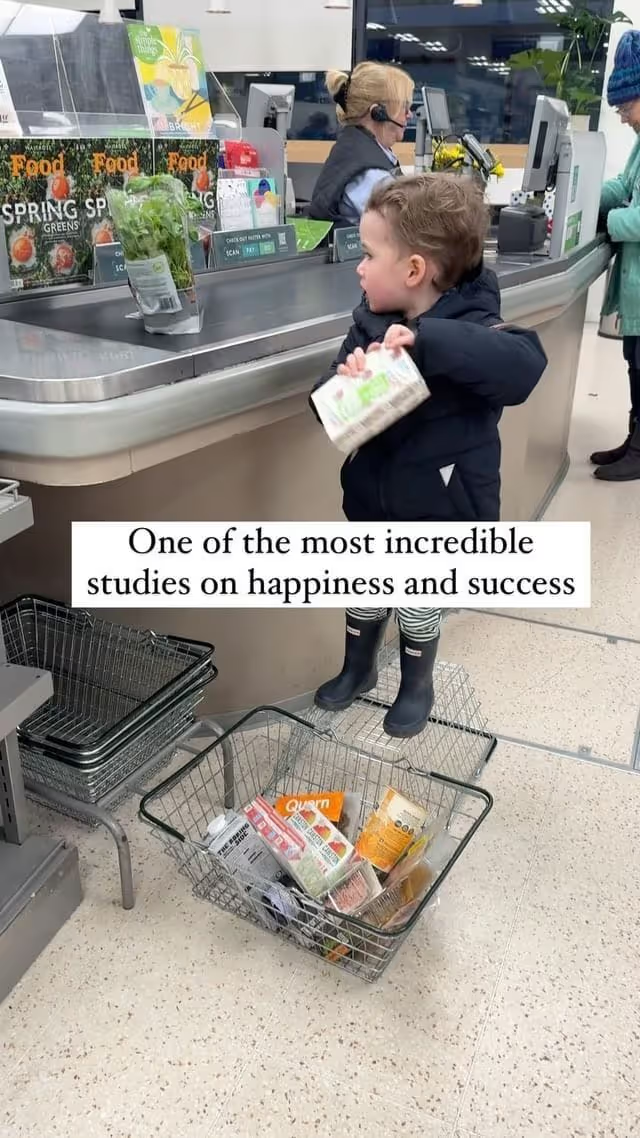
Instagram - @reisagda
I dove deeper into the study so you don’t have to. Here’s what I learned.
- Happiness is Love, Full Stop: One of the key researchers, George Vaillant, summarized the study with this phrase, indicating that the source of happiness and life fulfillment lies in love and relationships.
- Social Connections are a Lifeline: People who are more socially connected to family, friends, or their community are happier, physically healthier, and live longer than people who are less well connected. What better way to bond than accomplishing tasks for the greater purpose of a happy home?
- Well-being is a Lifelong Process: The study demonstrates that maintaining happiness and health is a lifelong process, indicating an advantage in starting early.
- Kids want to help! It gives them a sense of purpose. We need that sense of purpose for the long run. The ones who aren’t pushed to contribute to the household often develop into lazy adults. Too many of those!
- Skill acquisition comes early on. Skills last for a lifetime, eventually bridging to more skills.
It’s not so easy to see the big picture at 10 years old when Mom is nagging to take the garbage out. It can seem so pointless. But much like anything in life, there’s a curated purpose for all of it.
Mom had us contributing to the house because she knew it instilled a sense of integrity and discipline. It was the equivalent of a job.
As adults, we now have “real” jobs that can also seem pointless. One way or another, though, we’re contributing something. And that matters a whole lot.
Julie Lythcott-Haims, the brain behind the book "How to Raise an Adult," totally backs this up. In a popular Ted talk, she laid it out plain and simple: If kids aren't helping out at home, they're missing out on learning a crucial lesson - that work's gotta be done, and we've all got a part to play in making life smoother for the greater good.
You scratch my back, I’ll scratch yours.
In economics, they call this “social cooperation” or “contributive justice.”
Doing your part, or the whole thing collapses.
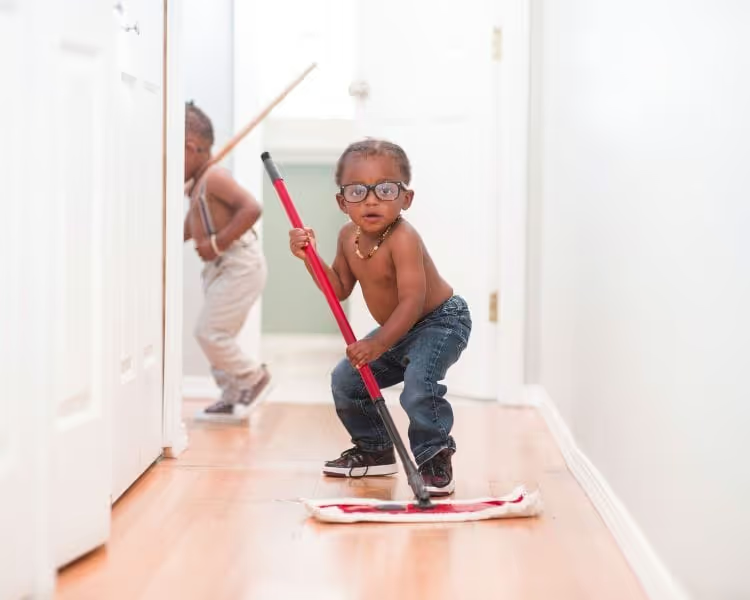
I call it “playing the game.” If you don’t play, the game goes on without you. You get left in the dust with all the others who quit.
Worst of all, you won’t have anything to show for yourself once the game is over.
So, whenever you feel resistance over completing your share of chores, realize that it's not just about keeping the place tidy. It's about building a happier, more successful you. The more your “player” is developed, the more you bring to the table in this game of life, adding to your “score,” tallied up when it’s all said and done.
Kids are so eager to get into this game. We should let them join, head-first.
It’ll pay dividends when we’re no longer at the helm.
Thank you for reading Down To Earth 🌍
If you appreciate my work the way I appreciate your reading, forward this email to someone you love!
